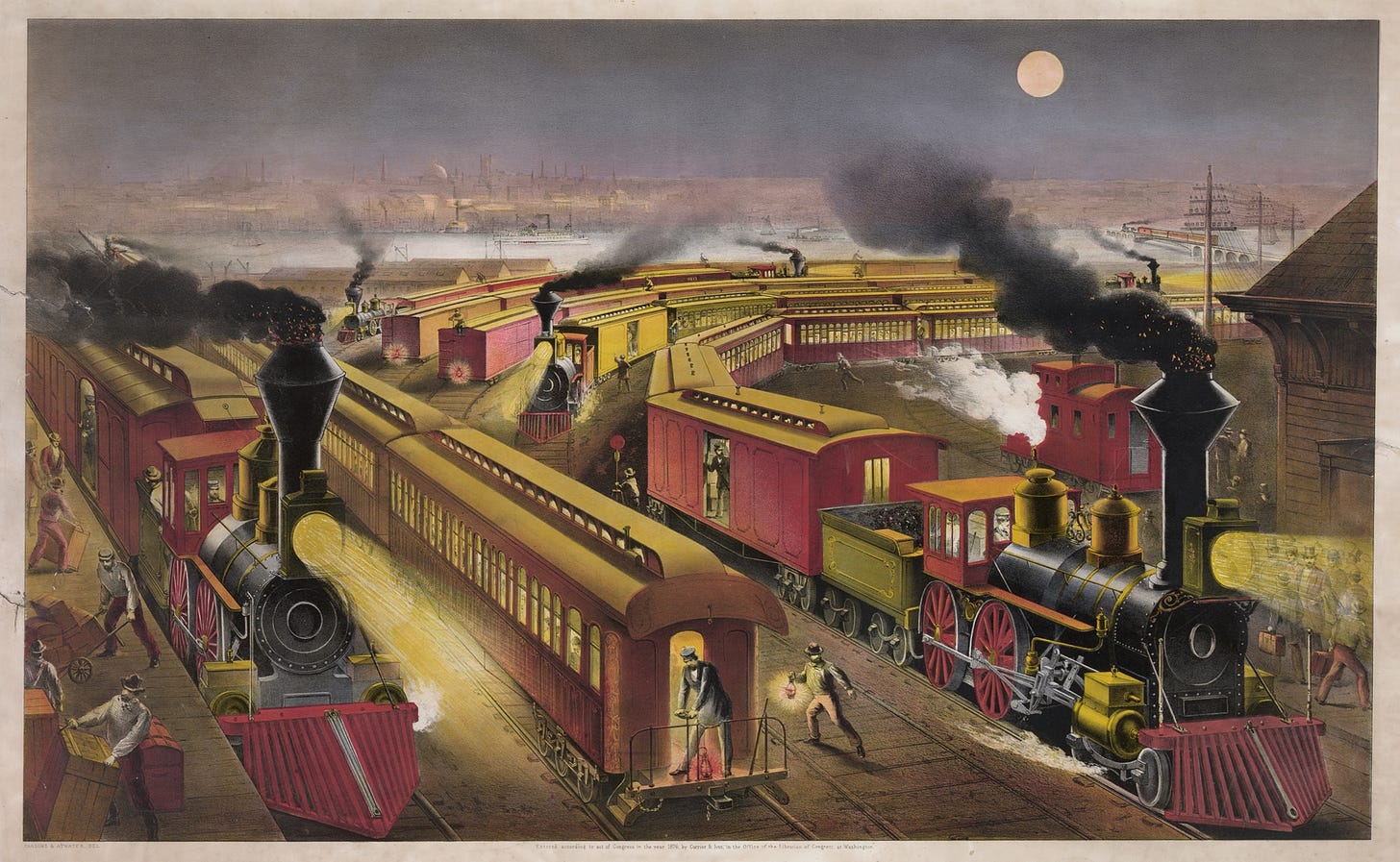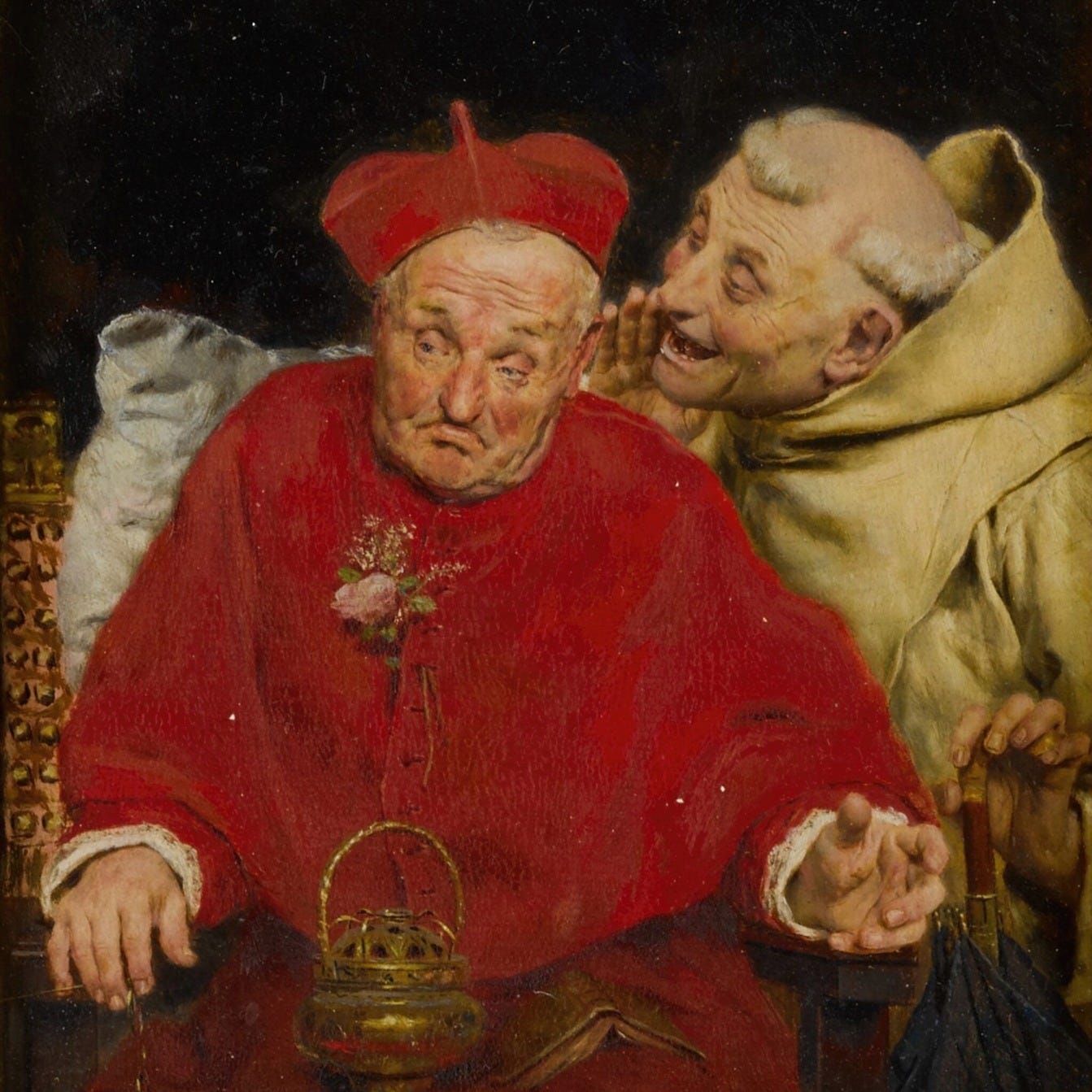No, that word doesn’t come from an acronym
Neither does that one.

Be warned: this issue contains some explicit language, discussed linguistically.
Professor Barleygrow stands before his class as the warm rays of a May afternoon filter imperfectly through a window whose state of cleanliness betrays the budget the university allots to humanities departments.
“Say that again, will you, Mr. Stanton?”
“Er, sure, Professor,” says the young man. “Fuck.”
He pauses for effect, eliciting a second round of giggles from his classmates, although fewer than the first time around.
He goes on: “‘Fuck’ comes from way back in Old English times, when if you wanted to, you know, have sex, you had to get the king’s permission first. So it means Fornication Under Consent of the King. F. U. C. K. We just shortened it because, well, that’s a mouthful.”
“No, that’s not what I heard,” says another student, a Ms. Philips. “I heard that it comes from when they used to tie you up in the town square for cheating on your wife. They’d put a sign above your head, saying “For Unlawful Carnal Knowledge”. They said ‘carnal knowledge’ because they were too squeamish back in, like, Shakespeare times to say ‘sex.’ Anyway, that’s where the word ‘fuck’ comes from.”
And then, after a pause, “And it serves them right for cheating!”
“Is that everyone?” says Barleygrow.
The silence gives him his answer.
Barleygrow inhales sharply and closes his eyes. When he opens them again, the students are, slightly to his dismay, still there.
“No, Mr. Stanton, Ms. Philips. As convincing as those explanations may have been when you learned them from your favourite uncle between rounds of ‘pull my finger,’ they’re nothing but a myth. In fact, there are almost no words in the English language that actually do come from acronyms, that is, from pronouncing the first letter of each word in a phrase. You see, it wasn’t until the twentieth century that…”
As Barleygrow drones on, the students fall back into the torpor occasioned by the sunbeam, the lack of circulation in the basement lecture hall, and the close proximity to the end of term.
Without some profanity to keep them interested, the students soon forget Barleygrow’s explanation, and one is even heard repeating the “For Unlawful Carnal Knowledge” explanation at a party later that evening.
You're reading The Dead Language Society. I'm Colin Gorrie, linguist, ancient language teacher, and your guide through the history of the English language and its relatives.
Subscribe for a free issue every Wednesday, or upgrade to support my mission of bringing historical linguistics out of the ivory tower and receive two extra Saturday deep-dives per month.
If you upgrade, you’ll also be able to join our ongoing Beowulf Book Club and watch our discussion of the first 915 lines (part 1, part 2) right away.
Words that actually come from acronyms
Our good Professor Barleygrow may not know how best to keep the attention of a classroom full of nineteen- and twenty-year-olds, but he’s right about the role of acronyms in forming English words.
An acronym, by the way, is a type of abbreviation of a phrase, where the first letter of each of the words in a phrase is pronounced as a word.1
Some famous examples include NASA, for the National Aeronautics and Space Administration, NATO, for the North Atlantic Treaty Organization, and UNESCO, for the United Nations Educational, Scientific and Cultural Organisation.
At cocktail parties, family reunions, and all over social media, you hear claims like the ones Barleygrow’s students made, namely that some word or other comes from an acronym that we no longer recognize as such. And, almost without exception, these claims are false. Nothing but urban legends.
In fact, virtually no words in the English language secretly come from acronyms.2
Note that “virtually”, though: there are very few English words that do in fact come from acronyms. These include laser, radar, scuba, and the care in care package. These words have something in common, which you may notice as we go over their origins.
The word laser, which dates back to 1960, was originally an acronym for light amplification by stimulated emission of radiation, which was coined from an acronym used for an earlier technology, the maser (which is the same acronym, with microwave in place of light).3 The maser acronym was coined in 1955.
The word radar is an earlier coinage, first appearing in 1940, when it was suggested by two American naval officers.4 It’s formed from the phrase radio detection and ranging. Here we see that the rules for forming acronyms can be bent: the first a in radar isn’t actually the first letter of any of the words in the phrase; it’s the second letter of the first word, but it’s included, presumably to make the resulting acronym easier to pronounce.
Scuba, as in scuba diver, is another word for a piece of technology. It stands for self-contained underwater breathing apparatus. The term was coined in 1952 by the inventor Christian Lambertsen, who invented one type of device we call a scuba set today.
The care in care package was originally CARE, for an organization called the Cooperative for American Remittances to Europe. The phrase dates back to 1945, which is when the CARE organization was founded in order to send humanitarian aid to Europe, where, after the end of the Second World War, many people were in danger of starvation.
Other, perhaps less common, words formed out of acronyms include canola (1979, from Canadian oil, low acid), snafu (1941, from situation normal; all fucked/fouled up), and fubar (1944, from fucked/fouled up beyond all recognition). The first is industrial in origin; the last two are from military slang.
As you consider this small set of English words truly derived from acronyms, ask yourself: what do they all have in common?
Words derived from acronyms all date from the period of the Second World War or later, and they all have something to do with technology or the military. This is no accident, and, in fact, it’s the key to understanding why the acronym etymologies of urban legend are bogus.
The early history of acronyms and initialisms

Most English words don’t come from acronyms because most English words came into the language before 1940.
Initialisms, on the other hand, that is, abbreviations where each letter is pronounced separately, appear much earlier: some date back all the way to Ancient Rome (SPQR, for senatus populusque romanus ‘the Roman senate and people’).
Familiar English initialisms such as a.m. and p.m. (ante meridiem ‘before midday,’ post meridiem ‘after midday) date back to the 17th century. Similarly, AD (Anno Domini ‘in the year of the Lord’) first appears in English in the 16th century.5
Initialisms started to be used regularly in the great boom of company formation in the 19th century: this is the era in which many formations like S.O. (the origin of what we today call Esso) for Standard Oil are found, as well as shortenings of long names such as the American Telephone and Telegraph Company into AT&T.
Why did this happen? I suspect that it was in part economic. While it’s certainly often slightly easier to say the shorter forms, it’s dramatically easier to write them. And in the age of the telegraph, where you’re charged by the letter, it’s a lot cheaper to do so as well.
But, as popular as initialisms were during the 19th century, it took longer for true acronyms to have their day. Perhaps this is because true acronyms, where the result is a pronounceable word, are harder to come up with by accident. You need vowel-initial words in just the right places.
Here’s another suspicion of mine: that the earlier popularity of initialisms started to change the way people named things to allow for the development of acronyms.
While there are a few scattered examples of acronyms in the late 19th century, acronyms didn’t become popular until around 1910. But these early acronyms, such as SCOTUS (Supreme Court of the United States), didn’t tend to become words in the more general sense: almost all of them are still spelled with capital letters, indicating an awareness of the fact that these words stand for phrases.
Interestingly, the first true acronym recorded by the Oxford English Dictionary (OED) is the word futhorc,6 referring to one of the Germanic runic alphabets, which was first attested in English in 1863. It was formed in 19th-century scholarship as an acronym of the sounds represented by the first six runes in their traditional order.7
After futhorc, the pre-1910 acronyms follow the pattern we see later on: they refer to political (SCOTUS, which we saw earlier; POTUS, President of the United States), military (AWOL, for absent without leave), or industrial (NALGO; National Association of Local Government Officers) matters.
The use of acronyms picked up dramatically after 1910, but the subject matter of these acronyms was much the same as before: new trade unions, military branches, and chemical solutions needed names, and acronyms obliged.
But it took the Second World War for the first true words formed out of acronyms to enter the English language. These are the words we examined earlier: laser, radar, and scuba. These words have their origin in acronyms but are spelled in lowercase today — indicating that their acronym origin has been forgotten.
And in the forgetting, these acronyms have become domesticated, taking on the appearance of everyday words. I suspect this is because the technologies they refer to had their origins in military applications, but then later broke free into everyday life. Everyday people can use lasers and scuba gear, and while radar isn’t a household item, it powers familiar aspects of life: air travel, highway speed traps, and the doors that open automatically in the supermarket.
So we should see the initialism, and later the acronym, as a child of the 20th century. The English of that era shows the influence of that century’s great forces: wars, commerce and consumerism, and the growth of large state bureaucracies. The acronym is the child of these great forces.
Why this urban legend won’t die
Perhaps it’s because so many of us are children of the 20th century that we want to see acronyms even where none exist. But I think there’s another reason as well.
Etymology is a messy subject. As you know if you’ve read any of my “weird word” series, the origins of even familiar words can be shrouded in mystery. And the explanations an etymologist gives often require a great deal of background knowledge even to understand. The origin of words can’t usually be explained within the attention span of someone making conversation at a cocktail party, or (as is more likely to be the case these days) a single tweet.
When I tell someone that the word charity is related to whore,8 whatever initial interest they had upon hearing that salacious bit of word gossip is soon spent when they realize that they need to smile and nod through a lengthy explanation of complicated historical phonetic laws before they get a chance to leave the conversation.
Acronym etymologies aren’t nearly so complicated: once you hear what the acronym stands for, you get it. You get a sense that you’ve peered behind the veil of language for a moment and seen how things really are.
This feeling of being an insider — without too much cost — is a common one for urban legends to evoke, and it’s probably one of the selective pressures that drives their evolution.
So, in short, no: posh doesn’t come from port out, starboard home (referring to the location of the good seats on the passage from Britain to India);9 shit is from an old Germanic root meaning ‘cut off’, not from ship high in transit (supposedly placed on shipments of manure, because they had to be kept away from water); and news is just the plural of new, i.e., new things; not an abbreviation for notable events, weather, and sports or north, east, west, and south.
So the next time you’re cornered at a cocktail party and hear someone about to opine about unlawful carnal knowledge, pass them this article. Or simply smile, nod, and quickly circulate to the hors d’oeuvres. You won’t have to wait long for your escape: these faux explanations all have the virtue at least of being short.
Strict style guides contrast acronyms with initialisms, which are like acronyms in that they’re composed of the first letter of each word in a phrase. In an initialism, however, each letter is pronounced separately, like AM for ante meridiem or USA for United States of America. But many people use the word acronym to refer to both acronyms proper and initialisms (and, in fact, this is the original usage of the word acronym). For this article, I’ll use the later, stricter sense of acronym, which requires the abbreviation to be pronounced as a word.
Here I’m omitting acronyms that are still recognizable as such: so NASA, NATO, etc. don’t come from acronyms; rather, they are acronyms.
Lasers were originally called optical masers.
LCDR S. M. Tucker and LCDR F. R. Furth, to give credit where credit is due.
For some reason, the Oxford English Dictionary doesn’t record the first usage of BC (Before Christ).
Spelled futhorc in an Anglo-Saxon context; futhark in a continental Germanic context.
Technically, it’s an acronym of the Latin alphabet representations of the sounds made by these runes: for continental Germanic: F, U, Þ (now spelled th), A, R, K; for Old English: F, U, Þ, O, R, C. And, equally technically, the word abjad, which was formed in the same way as an acronym for the first letters of the Arabic writing system, was coined earlier, in the 18th century. But since it was coined in Arabic and then borrowed into English, the OED doesn’t count it as the earliest acronym.
Yes, it’s true: leave a comment if you want to hear that story some time. And yes, I’m making full use of the strong language warning on this article.
The true origin is debated, but it’s probably a shortened version of Welsh Romani påš xā̊ra ‘half penny’, which later just meant ‘money’ (OED).




Sure. I'm interested in the common etymology of whore and charity. Also, interesting that the Latin for prostitute and mercenary are female and male derivations for "working for pay". And both seem to have considered low or lower status.
Another good one! And I believe "qwerty" and "modem" meet your criteria....